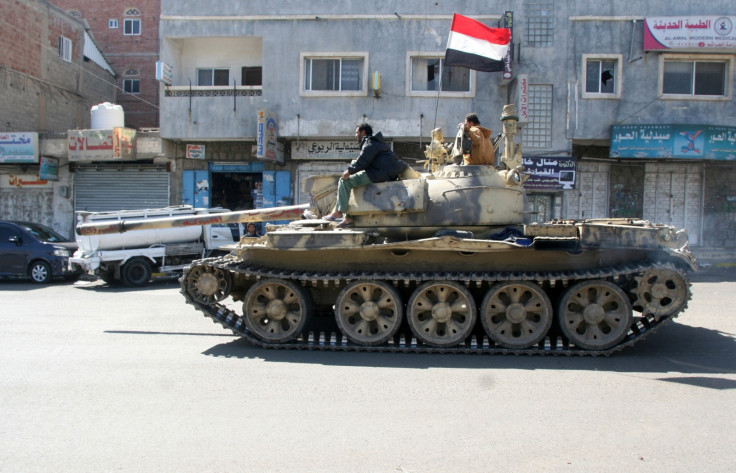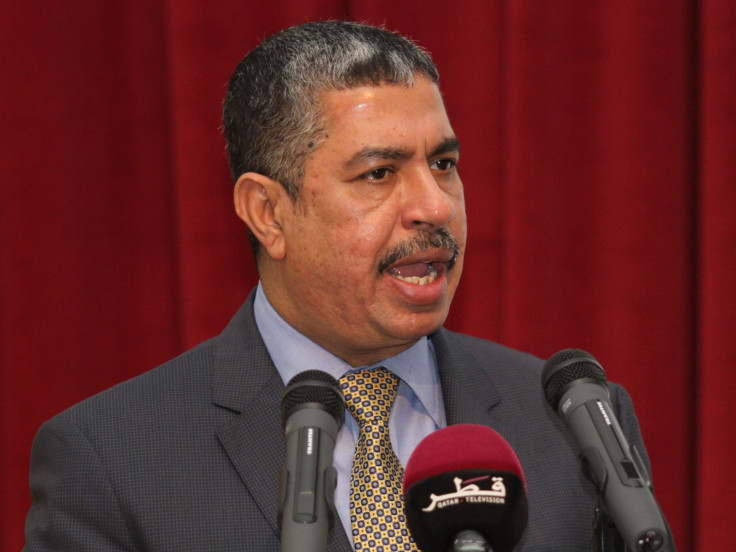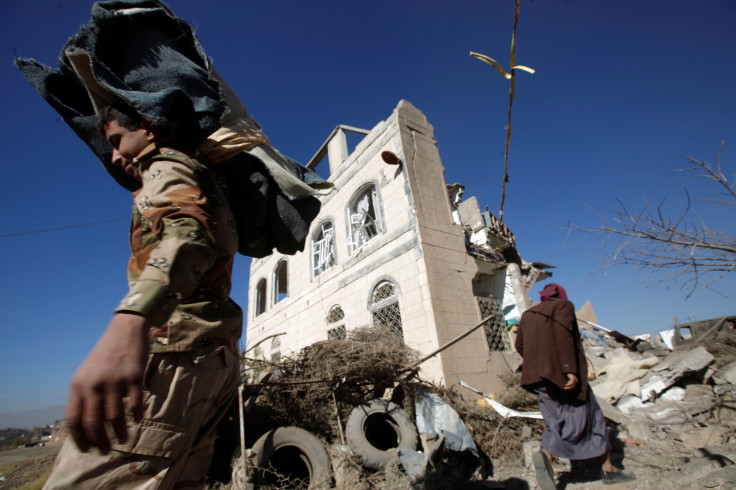Saudi-led role in Yemen's conflict 'welcome' says ex-prime minister Khaled Bahah
Former Yemeni PM's comments come as Riyadh faces criticism over civilian deaths from air strike campaign.

Amid fierce criticism over the Saudi-led coalition's bombing campaign of Yemen, the country's former prime minister has told a London audience that Riyadh's role in the conflict is welcome and that Houthi rebels they are targeting do have a future in the country should they agree to peace.
The Saudi-led air strikes to support the ousted UN-recognised government are blamed for most of the 10,000 deaths in the 20-month conflict. One strike in October hit a packed funeral hall in Sana'a, killing 140 and injuring hundreds more.
Addressing an event organised by the Chatham House think tank, former Yemeni PM, and vice president, Khaled Bahah, said the Houthi militia, which seized the capital Sana'a in 2014, had been hiding heavy weapons within schools and mosques, which endangered civilians.
"We have seen that the Saudis are leading that effort that has been welcome and requested by the president at that time and during a long time of war.
"Yes we have some airstrikes that have hit wrong places based on some wrong information, I think from both sides. The government and the coalition have requested to have an investigation committee.
"We are sorry for what is happening and I think we have to go forward for stopping the war that could stop the catastrophe in the country," he said.
Reported strikes on hospitals and other non-military sites have led to calls by human rights groups for an arms boycott of Saudi Arabia, which insists it never deliberately targets civilians and follows the rules of the Law of Armed Conflict.
The British Foreign Office concluded that there is no risk of Saudi breaches of international humanitarian law in Yemen, after the business and international development committees had recommended suspending UK arms sales to the kingdom pending a probe into the conduct of the war.

Khaled Bahah said: "There is no way that you can avoid it because the militia are not confronting you on boundaries. They are confronting you from the city, they launch missiles from the city and that is something that is not tolerated," he said.
"The last air strikes could drive all parties to a peace agreement, rather than pushing them away. Pushing them away could mean repeating the same mistakes and to avoid the same mistakes, it is better to stop the war."
The US Secretary of State, John Kerry said on Tuesday (15 November) an agreement had been struck between the Saudi-led military alliance and the armed Houthi movement for a cessation of hostilities from 17 November.
The talks took place in Oman, whose government is close to the Houthi group, and included the United Arab Emirates, which is part of the Saudi-led coalition supporting the president Abdrabbuh Mansour Hadi.
The humanitarian crisis has worsened in the country with the war displacing three million people and leaving millions on the brink of starvation. The World Health Organisation has sounded the alarm, saying that Yemen is at a significant risk of a cholera outbreak.

Khaled Bahah told the audience, assembled at the Royal Society, that the Yemeni conflict had a considerable regional and international dimension. He ruled himself out of the running to hold high office again, saying it was important that Yemen did not "recycle the regime" and that it had to bring in new faces to ensure no repeat of conflict.
"We have to select our new leaders where they could create hope, hope is very important. Our focus is now to reach the agreements as soon as we can, that could work in a positive way."
He said that Houthis would have to be part of any future in the country, adding: "Houthis as people are part of the country. If they were to become good citizens, if they were to abide by the rules and hand in the heavy and medium weapons, I think they have the right to live peacefully with their brothers and sisters in the country".
© Copyright IBTimes 2024. All rights reserved.






